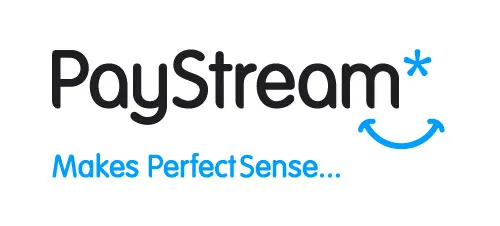Quick CV Dropoff
Send us your CV to be considered for one of our open roles
The aim of this guidance is to help you as the contractor engaged through a Personal Service Company (PSC) understand the April 2021 changes to the IR35 off-payroll rules.
As part of the budget on Monday 19 October 2018, the chancellor announced that the government would reform the off-payroll working rules (known as IR35) for an intermediary’s PSC working in the private sector. Following delays due to Covid-19, these new rules came into force in April 2021.
The purpose of the reform is to make sure that workers, who would have been an employee if they were providing their services directly to the client, pay broadly the same tax and National Insurance contributions as employees.
Public Sector 2017
In April 2017, HMRC introduced the off-payroll working rules in the public sector. The off-payroll legislation imposed an obligation on the public sector body (“PSB”) to inform Sellick Partnership of the status of a contractor and whether or not the contractor would be regarded as an employee or office holder of the client were it not for the contractor’s PSC being in the contractual supply chain (i.e. “inside IR35”).
Private Sector
The private sector definition includes all organisations that are not subject to the Freedom of Information Act. Prior to April 2021 in the private sector, the person providing services through their own PSC were responsible for deciding if IR35 applies and thus if the assignment is “inside’’ or ‘’outside’’ IR35. However, from April 2021 the responsibility for determining the IR35 status of the role has moved from individual contractors to the end-client organisation receiving the contractor service, and the responsibility to deduct the PAYE tax and NIC now falls to the organisation making payment to the PSC. This is usually the recruitment business such as Sellick Partnership — referred to in the legislation as the “fee-payer”.
N.B. Small organisations are exempt, so this change will only affect medium and large private sector organisations defined under section 382 of Companies Act 2006. However, there is an obligation on end-user clients to confirm to the fee payer whether they are exempt due to their classification as a small.
HMRC have developed a tool in order to check the employment status for tax (CEST) which can be used by the client in order to determine the role. Other factors to take into consideration are:
HMRC produced a technical note in 2017, which contained several illustrative scenarios. Below are two obvious examples:
Off-payroll working rules apply – “Inside IR35”
Nic works through his own PSC as an IT product designer at a large blue-chip PLC. He will:
Off-payroll working rules do not apply – “Outside IR35”
Jasmine is a Website Designer, contracted to a medium private company through a PSC to design and build a website. She will:
Disagreement in the determination of the role
If you don’t agree with the client’s assessment of the role, we will work with you and the client to reach a resolution. During this time, we must continue to apply the rules in line with their original determination and the client must respond to a request to review the status determination statement within 45 days. The final decision however will be with the client.
If a role is found to be inside IR35 by the client then you will not be able to use your PSC for the assignment.
In order to ensure that the appropriate taxes are deducted and paid to HMRC, we recommend that contractors sign up to an Umbrella company. The way an umbrella company works is pretty simple. You as the contractor become an employee of the umbrella company. This means that Sellick Partnership will pay the umbrella company and the umbrella company deducts the necessary PAYE and national insurance contributions and pays your salary.
An umbrella company will employ you under a contract of employment so whether you carry out one assignment or 100 you will be employed under the same contract, giving you a record of continuous employment, which helps with mortgage or loan applications. It also helps to ensure that you're on the correct tax code whilst providing you with just one pension pot. You also get access to statutory benefits such as maternity and sick pay but with the added benefit of an inclusive insurance package.

You, as the contractor, become an employee of the umbrella company. This means that Sellick Partnership pays the umbrella company, and the umbrella company deducts the necessary PAYE and national insurance contributions before paying your salary.

Here, you can find out more about why we have a preferred supplier list, what the risks are when choosing an umbrella company and the key things contractors should consider when choosing an umbrella company to work with.

We strive to ensure that our clients and candidates are informed every step of the way. Should there be any changes to the engagement or the way the work is done, the role must be re-assessed, gaining more information on the working practices and redo any assessment.

01253 600 140
enquiries@danbro.co.uk
Danbro website

0330 024 0946
welcometeam@giantgroup.com
Giant website

0800 197 6516
newbusiness@paystream.co.uk
Paystream website
01625 539997
Newbusiness@sapphireorg.co.uk
Sapphire website

This guidance document is intended for use by Sellick Partnership candidates only. The facts, information, and opinions contained herein are correct to the best of Sellick Partnership’s knowledge as at time of publication. This document is intended to provide general information only and does not constitute advice. It is not an exhaustive and complete reference document on this subject. Sellick Partnership can take no responsibility or liability for the use of or reliance on the information contained within this document or for any decisions or the consequences of any such decisions.

This area of our website is dedicated to contractors who are currently working with us, or those considering moving to a contract role. With extensive sector knowledge and a vast network of clients, we are the perfect recruitment partner for you.

We believe in assisting our contractors wherever we can. Here you can access documentation relating to Key Information Documents, submit online timesheets and discover more about PSC contractor insurance, as well as find information about how you can get paid.

To make the process of arranging cover easier for our contract candidates, we have partnered with Kingsbridge Contractor Insurance and have also negotiated a 10% discount for all Sellick Partnership contractors. Follow the link for more information.